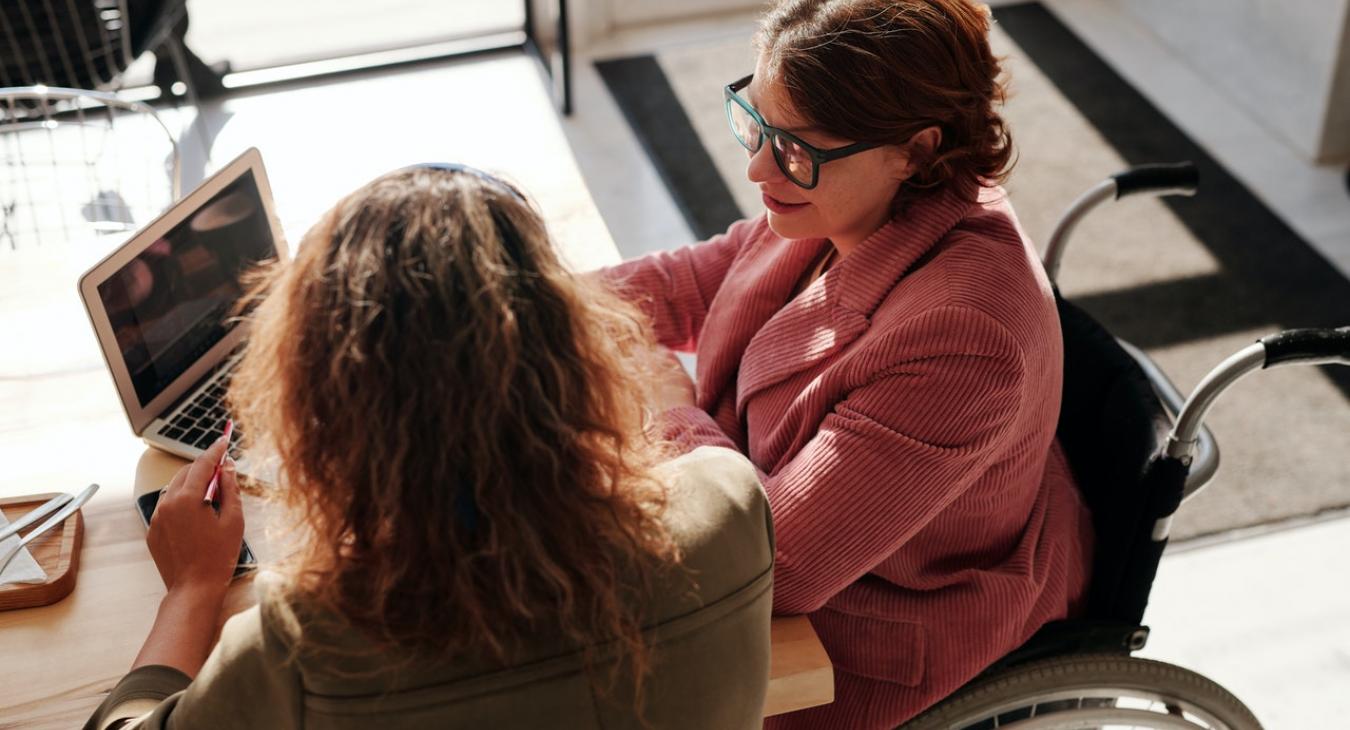
Webinar report by Paul O'Reilly and David Joyce
Members of the Congress Disability Committee attended the recent ILO webinar on disability inclusion in the world of work. Paul O'Reilly from ASTI provides the following report.
Facilitated by the International Labour Organisation's Global Business and Disability Network, all interested stakeholders, including governments, workers' and employers' organisations as well as organisations of persons with disabilities participated in a webinar to share good practices on the inclusion of people with disabilities in the COVID-19 responses related to the World of Work.
The webinar took place on the 24th of March, and was based around four presentations from different experts in the field and was hosted by Esteban Tromel of the ILO.
The introductory speech was given by Federico Negro who highlighted the need to continue to combat prejudice and encourage inclusivity among Workers with Disabilities.
The first speaker was Haibin Zhou of the ILO in China who lives in Wuhan city. Haibin said that the loss of jobs has had an impact on the mental health of people with disabilities. During the Covid19 shutdown of Wuhan, online courses on such things as soft skills were ramped up, awareness among the general population was raised and niche jobs were sourced through online careers counselling.
Yves Vuelliet of IBM said that his company has always tried to facilitate work from home and this often ties in with the needs of certain individuals. At the same time, extra efforts are being made to help people working remotely feel included.
Jon Messenger, also of the ILO, shared his top five tips for effective teleworking during the COVID-19 crisis and made what I felt was a particular interesting contribution having researched extensively in this area. He said that teleworking gets a boost in situations like this and in fact could be taken as an opportunity. Jon believes that teleworking is best if it's part-time as teleworking on a full-time basis can often lead to professional and social isolation as well as poor mental-health. He feels that managers are often resistant to teleworking as they feel that it leads to a loss of control. In terms of preparation, he made the point that appropriate tools and training are crucial but that this doesn't happen overnight. Other points he made were as follows:
- clear expectations are important for teleworking to be successful
- teleworkers need time flexibility – this is very important he feels
- teleworkers need to learn how to set boundaries between work time and personal time
- teleworkers and managers need to trust each other
Bela Gor of the Business Disability Forum in the UK talked about the importance of good meeting etiquette in a remote forum and how all participants from all backgrounds should be made to feel included. She also touched on the duty of employers to encourage teleworkers to be mindful of their physical and mental health. Both in the present crisis and in general, teleworkers should be able to be flexible with their time but also maintain work / personal boundaries. Furthermore, people working from home need to discover what works best for them in terms of structuring their day. A few of the final points she made were as follows:
- it's often a good idea to disable notifications on devices at home
- in the present context but maybe even in general, rolling news programmes can be distressing so it might be best to switch them off
- going forward, teleworking is likely to take off
- software vendors need to make their platforms disability-accessible if only for selfish reasons!
Congress Equality Officer, David Joyce, added that the COVID-19 pandemic is exacerbating already existing inequalities – from catching the virus, to staying alive, to coping with its dramatic economic consequences. Policy responses must ensure that support reaches the workers and enterprises who need it most.
A call to action based on the results of the webinar has been released. It reminds us that while the COVID-19 crisis is new, requiring us all to act, interact and communicate in different ways than we are used to, the inequalities exacerbating COVID-19's impact on persons with disabilities are not new. The risk in the response to the current crisis is that persons with disabilities will be left behind once again. The good news is that we already know what works. Fundamentally, we need social justice, effective inclusion, equality of opportunities and decent work. To advance social justice and meaningfully include persons with disabilities, we need to be bold. We need to be innovative. And we must act together - during the COVID-19 crisis and beyond.
You can watch an ILO video on the impact of COVID-19 on inequalities in the world of work
As Irish society grapples with the present crisis, the role of the labour movement in this country in protecting the interests of workers with disabilities has never been more important.
(COVID-19 Guidance is now available for staff and carers who provide services to people with disabilities. This guidance will ensure that staff and carers are fully aware of the steps they need to take during the outbreak. All of the materials are available to download here.
Paul O'Reilly is a member of the ASTI and writes here as a member of the Irish Congress of Trade Unions' Disability Committee.
David Joyce is Congress Equality Officer
